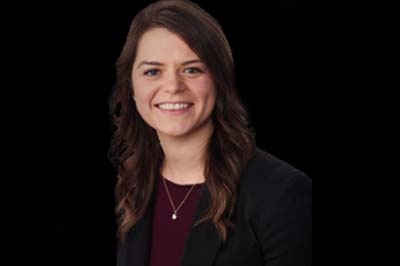The Financial Coach Training Program Helped Me Make a Difference
March 25, 2021
The Iowa Credit Union Foundation (ICUF) is preparing to virtually greet new participants to the ICUF “People Helping People” Financial Coach Training Program this May. While we are waiting to welcome new participants and enrich our financial coach credit union community, we reached out to our alumni. We talked with Crystal Trotter about the program, her experiences, and the lessons that she has learned as a financial coach.
What are the three most important learnings from the program you would share with your colleagues who are considering applying this year?
1) The number one thing I have continued to use from this training revolves around the psychology of money questions. Adam Carroll proposed two thoughts that involve, “If money were a person…” and “What is your earliest money memory..?” I won’t give it all away, but members have LOVED this! Everyone has a relationship with money and when we are able to dive deeper, we learn things about ourselves that we may have never connected before.
2) At the core of this training is remembering that we are people, too. We as financial coaches do not have to have it all together in order to be empathetic, a good listener, and a difference maker. While Adam Carroll and ICUF taught us how to help others, they also helped me learn about myself as not only a credit union employee, but a person as well.
3) You get to know other credit union rock stars throughout the state who are just trying to make an impact for their members as well! It was so great to truly get to know others who want to continue to learn right along with you.
What are the most common questions you, as a financial coach, receive from your members?
I think more than any question come statements such as, “There’s no way you can help fix my credit, it’s too far gone”, or “I will never be a saver, I live paycheck to paycheck”. These statements break my heart in one sense since we can help improve their credit score with the right mentoring, and they can end the cycle of living paycheck to paycheck and become a saver with the right tools. In another sense, I am just reminded how necessary credit unions are and the financial education philosophy many of them possess. Statements like these go straight to the core of why credit unions and financial coaches do what they do: people helping people improve their financial position one step at a time.
How has this experience helped you communicate effectively with members or your colleagues?
Since this training, I have found myself feeling even more empathetic for others and their financial situation. We are living through a global pandemic that has caused families to suffer from joblessness, illness, loss of loved ones, and even some through a derecho! Hearing how so many members are just trying to get by through this last year has reminded me that we are all just trying to do what’s best for ourselves and our families. I try to remind myself daily this point we learned in the training: “Listening creates space for service to arise. It allows you to empower people and communities to achieve financial well-being.” It’s difficult to just listen at times, but it has been so worth it. Everyone has a story that’s worth listening to!
How has your financial coaching knowledge and training helped you make a difference in the lives and financial wellness of your members?
I have a unique role at Dupaco as a Community Outreach and Education Representative and I often work with local non-profits and provide financial education to their participants. One of the non-profits here in Cedar Rapids has a group of women who are suffering from trauma of many different kinds: abusive relationships, drug or alcohol abuse recovery, incarceration, etc. As many of us know, financial trauma often seems to stem from situations like these, leaving me feeling extra cautious about the words I use and the way I present content.
Not long after the financial coaching training, I decided to take the content we learned about the psychology of money (the questions I mentioned in question one) and test them out with this group. They LOVED it! They were sharing their stories more than ever and you could see the light bulb for so many as they realized that the relationship they feel with money stems from their childhood, their teenage years, their adulthood, their parents, etc. The ability to put these tools from this training to work and, in turn, help women feel like they aren’t alone and they can change their financial future is something I will never take for granted.
What are some tips you use in your daily lives that help keep your finances in check and manageable?
I tell members all of the time that without short-term and long-term goals, as well as a solid budget, your finances might feel like a burden instead of a tool to get you to your dreams. My husband and I stay pretty disciplined with our budget so we can take any extra money at the end of the month and reduce our debt. Remember, though, that in order to successfully maintain a budget, you have to revisit it at least monthly. Don’t let time pass you by and your spending get loose. Stay disciplined, post your goals somewhere you can see them and continue learning from credit union friends and partners along the way!

Crystal Trotter is a 2020 graduate of the People Helping People Financial Coach Training Program